Ho Chi Minh City: Compression of the ninth cranial nerve has caused Ms. Hoai, 42 years old, to often faint, have convulsions, have neck pain, and have severe headaches for the past three years.
Ms. Hoai often has strong convulsions every time she eats or turns her neck slightly. "If I accidentally open my mouth wide, the convulsions are as shocking as an electric shock," she said, adding that for months she did not dare chew, only sipping porridge and eating liquid foods.
She was diagnosed by a doctor at a hospital with trigeminal neuralgia due to a conflict with the cerebellar artery. The symptoms subsided after taking medication, but then the seizures worsened, so she went to Tam Anh General Hospital in Ho Chi Minh City for examination. The results of a 3 Tesla MRI scan and a survey of the cranial nerve blood vessel conflict of Ms. Hoai showed that the cerebellar artery was pressing on the 9th nerve in two places. The doctor ordered surgery to separate the blood vessel and nerve conflict.
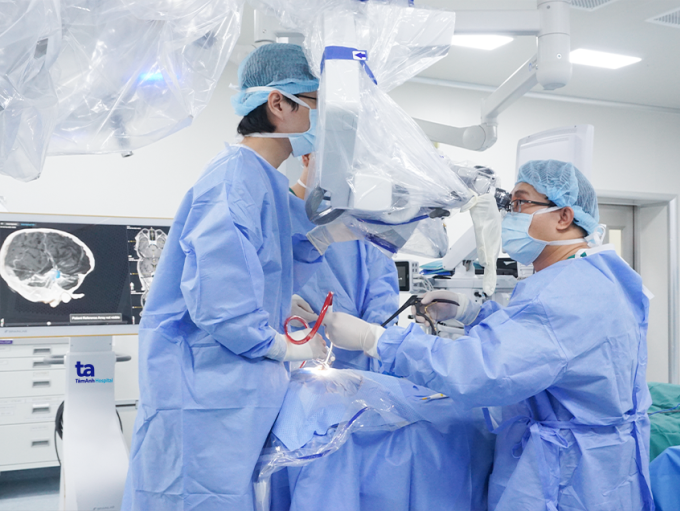
Surgery to separate the 9th nerve and artery for patient Hoai. Photo: Provided by the hospital
Doctors use a new generation of 3D fluoroscopy microscopes with high magnification and clear images. To access the 9th nerve, doctors must enter the cerebellopontine angle, which contains many important structures (petrous vein, drainage system, transverse sinus, nerves 5, 7, 8, 10, 11...).
The compression site is located about 5-6 cm from the cerebral cortex. The doctor uses a specialized endoscope to enter deeper nooks and crannies in the brain. Then, the ninth nerve is separated from the two locations compressed by the cerebellar artery with a specialized pad (teflon). This pad has the effect of preventing blood vessels from affecting the nerve.
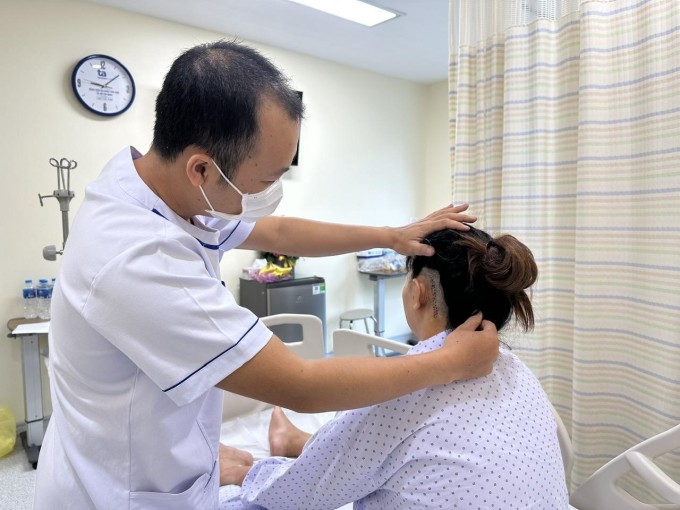
Ms. Hoai received post-operative wound care from nurses. Photo: Provided by the hospital
One day after surgery, Ms. Hoai's pain was much less, she could eat, drink, talk, and laugh. On the third day, the patient chewed without any signs of pain, no more convulsions, and her health recovered well. She is expected to be discharged after a week of treatment and regular check-ups.
Peaceful
* Patient's name has been changed
| Readers ask questions about neurological diseases here for doctors to answer |
Source link











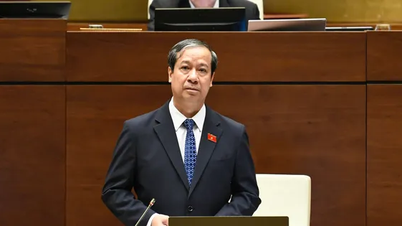

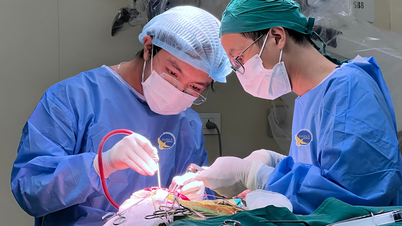




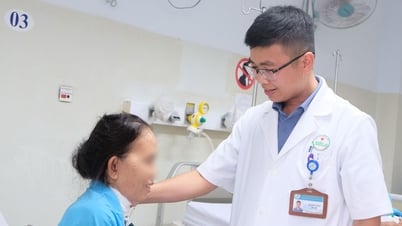
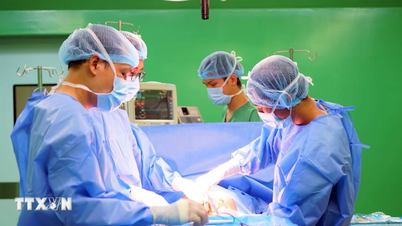




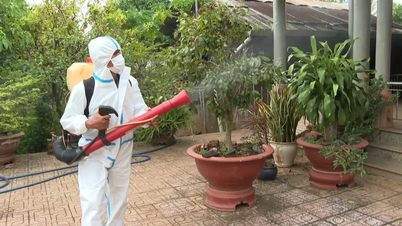
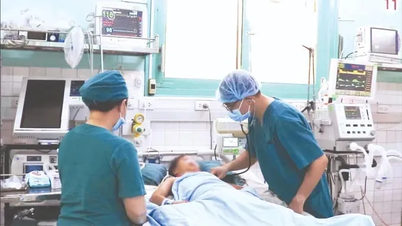
























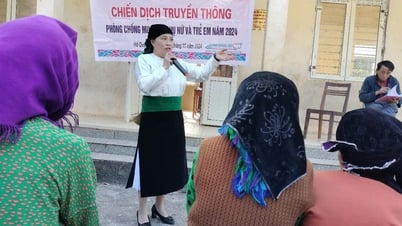










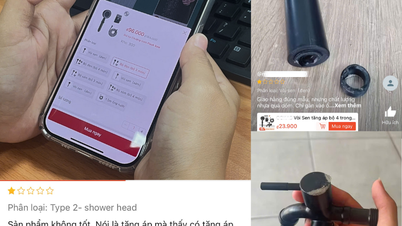








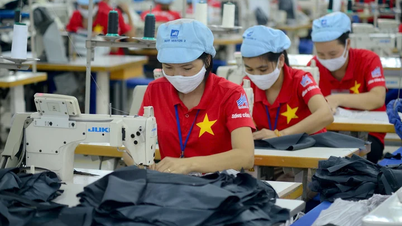


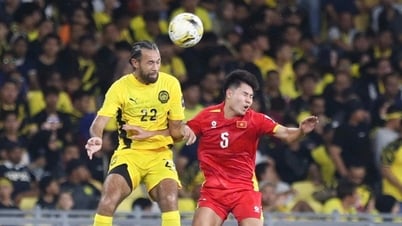


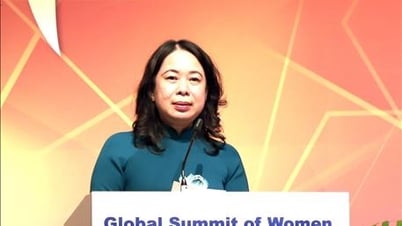



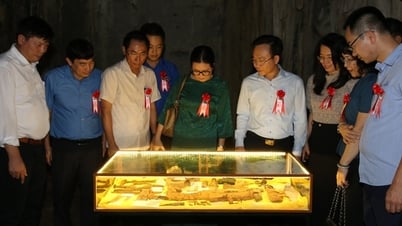

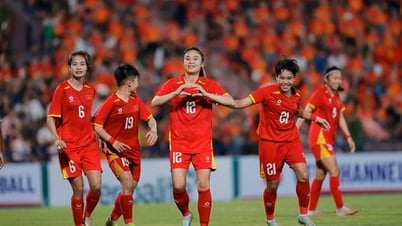

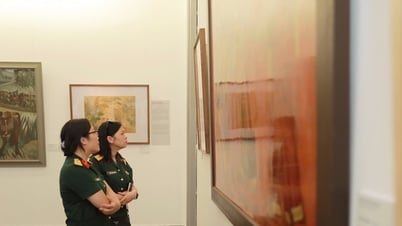


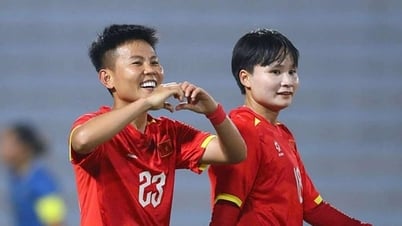



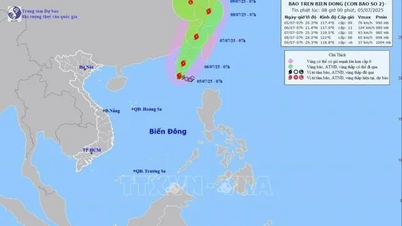






![[OCOP REVIEW] Bay Quyen sticky rice cake: A hometown specialty that has reached new heights thanks to its brand reputation](https://vphoto.vietnam.vn/thumb/402x226/vietnam/resource/IMAGE/2025/7/3/1a7e35c028bf46199ee1ec6b3ba0069e)






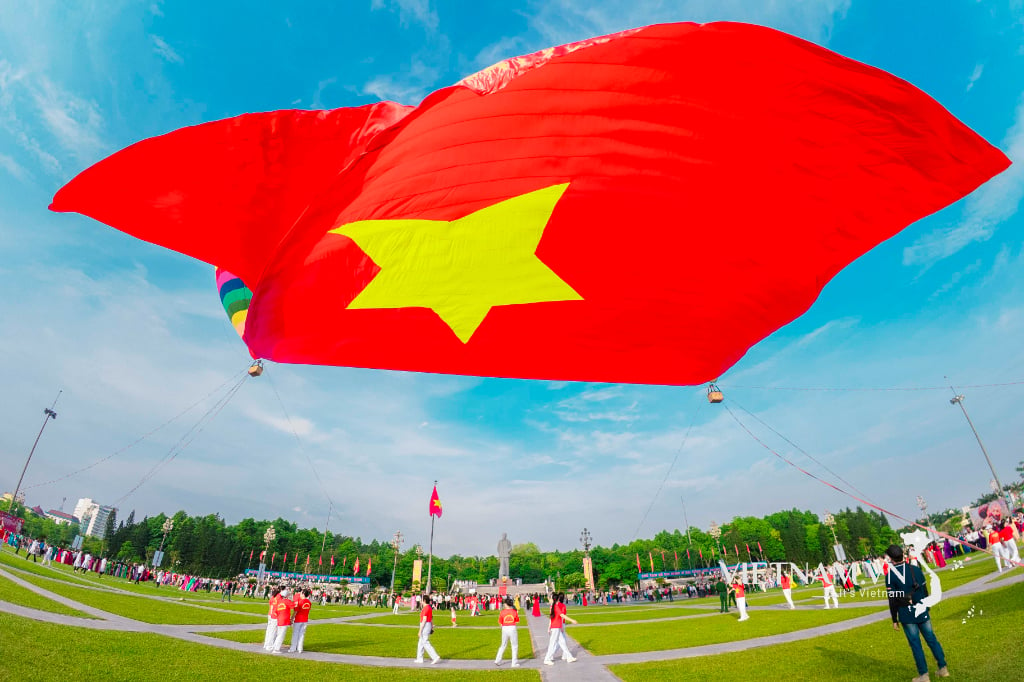
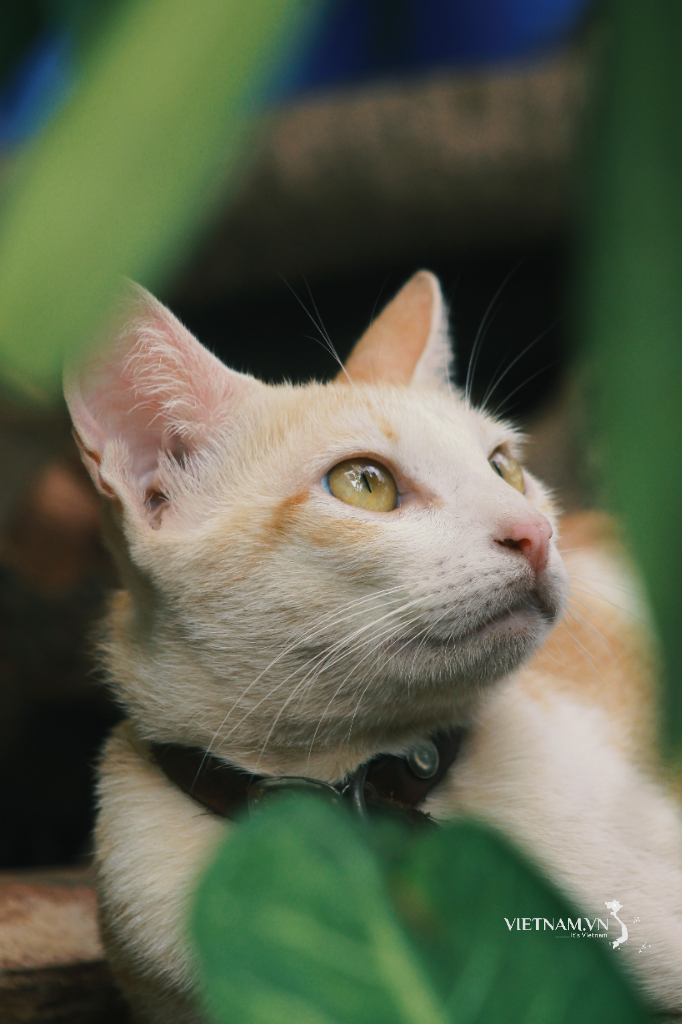

Comment (0)